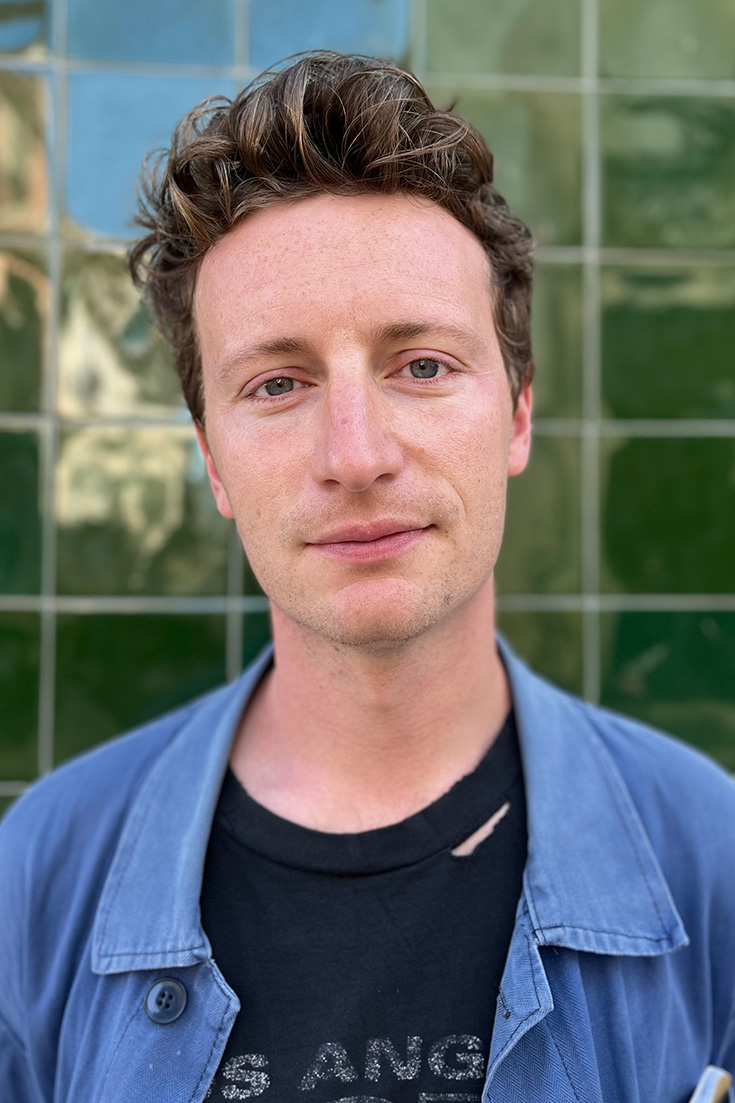
Edgar Kunz
An award-winning poet and author of "Fixer" and "Tap Out," Kunz's work has appeared in major literary outlets including The New Yorker and The Atlantic.
Edgar Kunz is the author of two books: “Fixer” (Ecco, 2023), a New York Times Editors’ Choice book, and “Tap Out” (Ecco, 2019), which The Washington Post calls “a gritty, insightful debut.” He has been an NEA Fellow, a MacDowell Fellow and a Wallace Stegner Fellow at Stanford University. His work has also been supported by fellowships and awards from the Academy of American Poets, the Hawthornden Foundation, the Robert W. Deutsch Foundation, and Vanderbilt University. Recent poems appear in The New Yorker, The Atlantic, Oxford American and Poetry. He also teaches in the low-residency Newport MFA.
Q&A with Edgar Kunz
Where did you grow up? Can you tell us a little about your educational journey?
I was born and raised in New England. My father was a handyman and my mother was a stay-at-home mom. We lived all over Massachusetts and Connecticut before settling outside Hartford. I went to public school and discovered writing as a community college student. I transferred to a four-year school after a year — Goucher College — and then went on to graduate study at Vanderbilt and Stanford. In 2018, I returned to Goucher, where I taught and directed the creative writing center for the past seven years.
When did you first fall in love with your field of study? What made you decide to work in academia?
My early artistic training was in music. I was a jazz trumpet player for many years. I've played in a bunch of bands and toured a bit — not just jazz, but funk, hip-hop, afrobeat. In the years after college, I was getting more serious about writing and I felt I had to choose between music and poetry. I chose the poems. But my sense of the line, phrasing, intonation, rhythm, improvisation — that all comes from those years spent in music.
Can you explain the focus of your research?
I'm a working class poet. That fact shapes the way I see the world and how I understand my work. Though my poems critique power and are, at their core, political poems, I'm primarily interested in people and how they live and how they understand and misunderstand themselves. My work insists on the potential of the image to disrupt and reframe.
Can you talk a little about your teaching philosophy? What do you most like about teaching?
My classes are rigorous and supportive, a place for exploration and risk-taking and growth. A risky, interesting failure is better — teaches you more — than a conservative success. I ask my students to push themselves, to push their thinking and their sense of what they can accomplish on the page and off.
What attracted you to VCU? What are you most excited about in regards to VCU and Richmond?
What's not to like! It's a program with incredible history — some of my very favorite poets, including Larry Levis and Claudia Emerson, have taught here — and an exciting future. My colleagues are making really excellent work and the MFA program attracts some of the most promising young writers in the country. I couldn't be more thrilled to be joining this community.
Can you tell us either a quirky fact about yourself or some of your hobbies?
I like to go on long self-supported bike trips. This summer, I'm biking from Pittsburgh to D.C. for the second time. Next year, I'm biking the perimeter of the Netherlands with a bunch of friends.